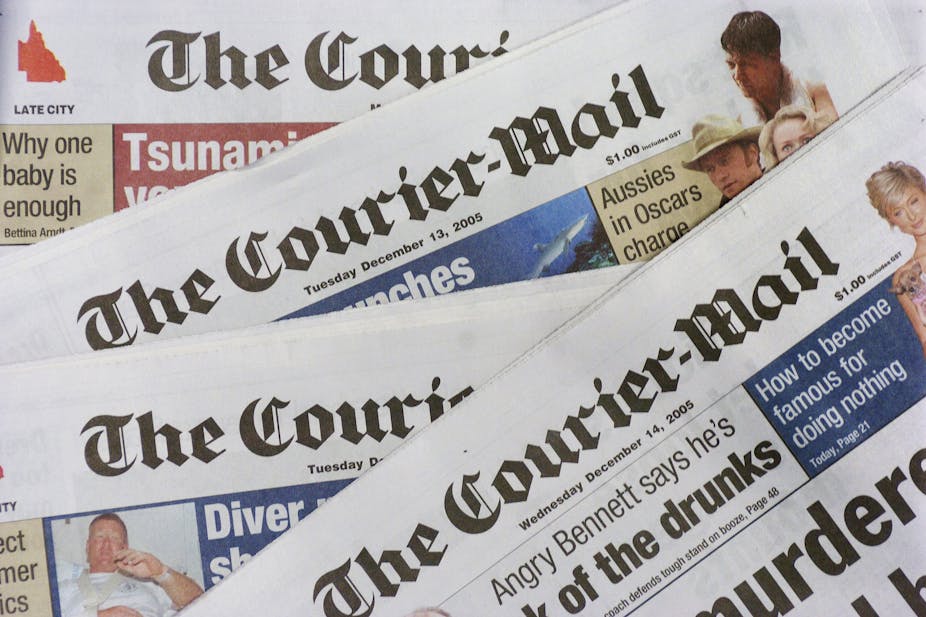It is a matter of public record in Australia that my grandfather was a communist spy.
That he wasn’t really one doesn’t always matter. Manning Clark, famous Australian historian and my father’s father, is recorded in several major Australian newspapers as having been a secret agent.

It was in 1996 that Brisbane’s Courier Mail published an eight-page liftout alleging that Clark, who died in 1991, had been a secret agent working for the Union of Soviet Socialist Republics, and that he had secretly received an Order of Lenin for this work.
The Courier Mail’s report was syndicated across several News Limited papers, and of course went on to receive widespread coverage in Australian and international outlets.
Was it true? The Press Council found, in its Adjudication No. 890:
The newspaper had too little evidence to assert that Prof Clark was awarded the Order of Lenin – rather there is much evidence to the contrary.
That being so, the Press Council finds that The Courier-Mail was not justified in publishing its key assertion and the conclusions which so strongly flowed from it. The newspaper should have taken further steps to check the accuracy of its reports.
While the Courier-Mail devoted much space to people challenging its assertions, the Press Council believes it should have retracted the allegations about which Prof Clark’s supporters complained. That adjudication effectively discredited The Courier Mail’s reportage as not meeting the professional standards expected of journalism.
Of course, The Courier Mail nor any of the parties making the allegations subsequently retracted them, and the Press Council had no power to compel that reparatory action or any other. These wilfully false accusations remain in circulation — not least because News Ltd writers continue to re-air them.
If such a finding were made against an academic, pursuant to a formal grievance heard by our peers, we would expect to face sanctions. The same is true for counsellors, lawyers, sportspeople, and many other professionals in this country.
That the same is not true for journalism in Australia has been manifestly evident in the career trajectories of the journalists involved in making and then sustaining the allegation. In particular, the editor then in charge of The Courier Mail, Chris Mitchell, has gone on to become editor-in-chief at The Australian.
This is why I believe there is a strong logic for endorsing the federal government’s proposed Press Standards Model, which uses media exemptions from privacy laws as leverage for enforceable self-regulation.
To some extent, ad hominem attack is a normal part of the media game. But that does not detract from its abusiveness.
There is no doubt that the profession of journalism has good reasons to fear the consequences of government or other bodies interfering in its ethical self-regulation. But the community at large has equally good reasons to fear the consequences of journalism without ethical checks and balances.
Legally enforceable self-regulation by the profession is the most appropriate response to these twin dangers.
Australian journalists, especially those in the written and printed media, have to date been answerable to few ethical limitations other than the directions of their employers and the law.
There are countries where the profession of journalism is subject to an enforceable ethical framework, though. And there is no clear case that Australia’s democracy is stronger than such countries, or that Australian journalists are less fearful of undue influence.
The legal framework in Iceland, for example, affords journalists and their sources greater protections against proprietors, government, and other stakeholders. But the quid pro quo is enforceable self-regulation. Iceland’s journalists are simply more answerable to their peers for the way they meet standards of professional conduct.
It is worth briefly considering an Australian example from 2011: the case of Eatock v Bolt. This complaint was heard in the Federal Court, which found Andrew Bolt had breached Australia’s Racial Discrimination Act and ordered his publisher to issue retractions and apologies.
In that case, the complainants did not press the case for damages against Bolt; instead they settled on a penalty that would be entirely within the scope of a properly empowered Press Council or equivalent authority. Indeed, it seems that the complainants pursued the case through the court system precisely because that was the only mechanism by which they could enforce redress upon an Australian newspaper.
At what point in Australian public life is a powerful publisher compelled to account for its mistreatment of individuals or groups? Or to withdraw its support from journalists who embark on personal campaigns of victimisation? For those who cannot litigate, the answer to date has been never.
I have no particular wish to hurt Chris Mitchell or his co-conspirators, as hurtful and unfair as their actions have been to my family.
But simply ensuring that the rulings on professional ethics of the Australian Press Council (or some equivalent peer authority) had an enforceable standing would act as a brake on such abuses of power.
Communications minister Stephen Conroy’s policy offers direct succour to citizens and groups who engage with civil society – even if you argue that its details need improvement – because this kind of self-regulation means complaints about victimisation and vilification by journalists will become enforceable.

